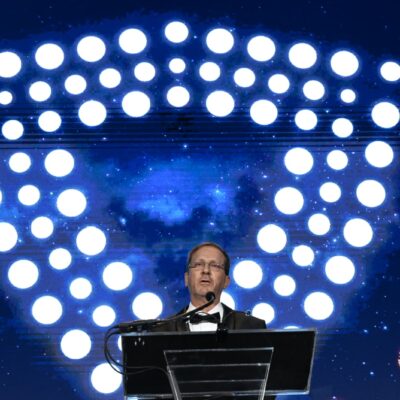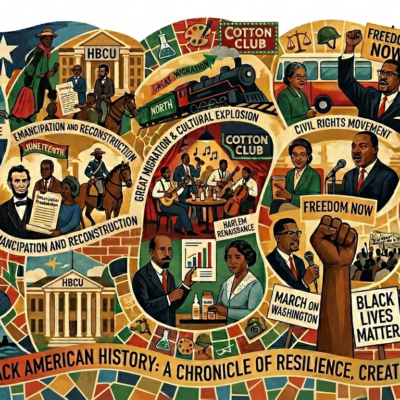After weeks of talks, World Zionist Congress strikes power-sharing deal
After weeks of negotiations, the World Zionist Congress reached a power-sharing agreement on Thursday night that will split control of the National Institutions between the center-left and center-right blocs, though some significant personnel questions remain, sources involved in the talks told eJewishPhilanthropy.
Under the deal, Yaakov Hagoel, of World Likud, will divide the chairpersonship of the World Zionist Organization with an as-yet-undecided representative of the center-left bloc, each serving half a five-year term.
Rabbi Doron Perez, chair of the religious Zionist World Mizrachi party, will serve as president of the WZO — a largely ceremonial role — for the full five-year term. He will succeed Steinhardt Foundation CEO Tova Dorfman, who has served as WZO president since January 2023, will step down from the role.
Though the deal was signed by all of the relevant parties this week, it will only be fully ratified when the Zionist General Council, the main executive body of the World Zionist Congress, meets on Nov. 23.
“After an intensive period of Jewish and Zionist democracy in action, the final agreement that we have reached will enable our national institutions to continue on with their important work,” said WZO Vice Chair Yizhar Hess, who represents the Conservative movement’s Mercaz Olami party and who led the negotiations for the center-left bloc. Under the agreement, Hess will retain his position and gain additional powers.
Unresolved in the agreement that was signed on Thursday night is the leadership of Keren Kayemeth LeIsrael-Jewish National Fund. Under the deal, the center-left bloc will select the first chair of the organization, which controls more than 10% of the land of Israel and has an accordingly large budget and political influence. Initially, this was supposed to go to a representative of the centrist Yesh Atid party, Israel’s largest opposition party. However, last week, Yesh Atid announced that it was withdrawing from the so-called National Institutions, describing them as irrevocably corrupt.
This has left the position up for grabs in the center-left bloc. One name that has been rumored to be in the running for the position is Gil Segal, a former CEO of the Yesh Atid party. Segal has not publicly commented on the matter, and Yesh Atid announced that if Segal takes the position, he would lose his affiliation with the party and said that there would be a “suspicion of corruption that must be investigated.”
The party added: “We believe that Gil is not part of this.”
A WZO source told eJewishPhilanthropy that the lack of clarity regarding the leadership of KKL is primarily a reflection of the coalition agreement process, which first requires the leadership of WZO to be named so that has been the primary focus.
“Absolutely no decisions have been made [regarding KKL leadership],” the source said, adding, “I wouldn’t read much into it.”
There was some confusion about the leadership of the WZO earlier this week after the congress passed a resolution that officially installed Perez as chair for the first half-term, followed by Hagoel. However, sources in the talks told eJP that this was a procedural matter and did not reflect the final resolution that was still being worked out at the time.
The agreement largely reflects an arrangement that was proposed last Tuesday.
For the center-left bloc, the arrangement represents a major victory compared to the agreement that was reached following the 2020 World Zionist Congress elections, in which World Likud held the chairs of both the WZO and KKL-JNF for the full five-year terms.
The agreement also keeps the far-right Otzma Yehudit party out of the National Institutions and prevents Israeli Prime Minister Benjamin Netanyahu’s divisive son, Yair, from obtaining a senior-level position in the WZO or KKL-JNF. It was Yair Netanyahu’s nomination for a top WZO position last month that derailed the initial power-sharing agreement.
“This agreement ensures our institutions have balanced leadership without the presence of provocateurs who would undermine our efforts on behalf of Israel and the Jewish People,” Hess said.
In addition to the question of who will first serve as KKL-JNF chair, two other senior positions have yet to be filled. The agreement leaves World Likud — specifically Culture Minister Miki Zohar of the Likud party — with two spots to fill on Zionist General Council. (It was one of these spots that Zohar tried to give to Yair Netanyahu.)
The agreement also includes a 50% increase in funding for the Conservative and Reform programs.
“This agreement affirms that Reform and Progressive Jews have an essential role in shaping Israel’s future. It’s a testament to what can happen when we bring moral clarity, strategic partnership and steadfast love for Israel to the Zionist table,” Rabbi Josh Weinberg, URJ Vice President for Israel and Reform Zionism and executive director of URJ’s Zionist arm ARZA.
World Mizrachi hailed the new power-sharing arrangement as a victory for Jewish communal unity. “The agreement reached represents a commitment to national responsibility and a goal of creating broad partnerships to confront a growing array of challenges in Israel and across the Diaspora,” the organization said.
Under the agreement, in addition to Perez’s appointment as president, Gael Grunewald will be named deputy chair of the WZO and head of the Department of Education, and Roi Abecassis will be named deputy chair KKL-JNF and head of the Department for Zionist Jewish Identity.
“Specifically in these moments where there are many unprecedented challenges and areas of legitimate debate within our broader Jewish community, we have proven that we are willing and able to put the best interests of the greater Jewish world at the forefront and recognize that love of our people and our covenant of fate must come before anything else,” Perez said in a statement on Wednesday. “World Mizrachi is deeply proud and grateful to be a significant part of the WZO’s leadership in this period where partnership, mutual trust and respect as well as a sense of national responsibility are so critical in confronting the many challenges we face. We may indeed be the smallest of nations but we are the largest family.”

 Add EJP on Google
Add EJP on Google















